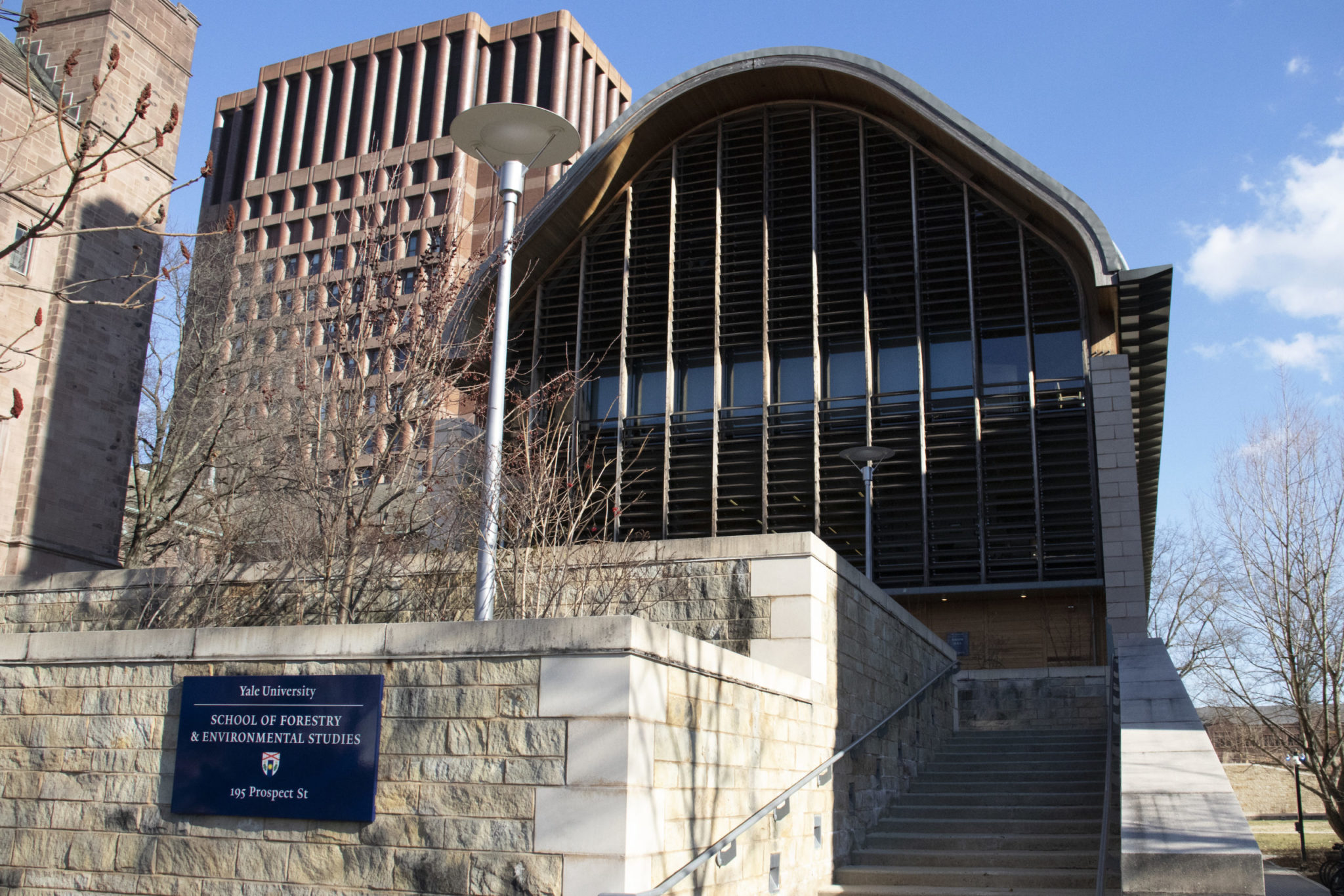Yale researchers highlight environmental health disparities in LGBTQ+ populations
Two researchers at the Yale School of the Environment published a paper spotlighting the environmental health burden that members of the LGBTQ+ community experience.

Courtesy of Paula Pineda
A new paper from researchers at the Yale School of the Environment explores the unique environmental exposures and outcomes associated with the LGBTQ+ population in America and offers policy, public health and research recommendations.
In a paper digitally published in the American Journal of Public Health last December, Professor of Environmental Health Michelle Bell and Leo Goldsmith ENV ’20 describe environmental health inequities in the context of the LGBTQ+ community. Divided into seven sections, the paper raises the role of social institutions, examples of disproportionate environmental exposure and public health implications, among other topics. Ultimately, the paper recognizes the mechanisms that contribute to potentially heightened environmental health risk factors for the LGBTQ+ population and calls for additional research into environmental inequities.
“The LGBTQ+ population is targeted by discriminatory policies that contribute to poorer health outcomes,” Bell said. “Environmental justice is a key theme of my research program, and we aim to investigate the multiple pathways through which people suffer higher health burdens from environmental conditions. The goal of this project was to explore how environmental exposures may disproportionately affect the LGBTQ+ population to raise this issue in the scientific literature and hopefully catalyze further research and understanding on this issue.”
In one section, the paper identifies three environmental exposures — air pollution, environmental disasters and second-hand smoke — which disproportionately impact LGBTQ+ individuals. These consequences may reveal themselves in rates of exposure or associated discrimination experienced due to people’s gender identity or sexual orientation.
For example, the paper recognizes how minority stress and gender-based stereotypes, in addition to LGBTQ+-specific stressors such as internalized homophobia, may lead to higher second-hand smoking rates in LGBTQ+ individuals. Goldsmith noted that research from the Center of American Progress found that more than one-third of LGBTQ+ Americans experienced some kind of discrimination in the past year and for transgender Americans, that number rises to more than three-fifths.
“[T]here needs to be much more research on this topic,” Goldsmith wrote in an email. “There are potential links between environmental disparities and sexual and gender minority status, however we need to first address the lack of health and demographic data for sexual and gender minorities nationally and within health systems that prevent robust research within this topic.”
Bell highlighted the vulnerability of Black transgender women in particular and emphasized the need for intersectionality when considering research on environmental health conditions. The paper provides illustrative examples of discrimination that are influenced by race and socioeconomic status in addition to LGBTQ+ identity.
Goldsmith underscored how his experiences as a low-income, queer, transgender Latino climate and health expert led him to create work that could “[validate] what LGBTQ+ communities are and have been experiencing.” During his time at Yale, Goldsmith was selected for the Environmental Fellows Program and was involved with the intersectional student interest group Environmental Justice at Yale, or EJAY, in addition to the social and advocacy group representing the LGBTQ+ community called Out in the Woods, or OITW.
Kieren Rudge ENV ’22, a current co-lead of EJAY and a member of OITW, said that there currently is an increased emphasis on ideas of justice in environmental research and efforts to include missing voices.
“A thing about this [paper], and a lot of work that comes about justice and equity that comes out nowadays, is just that these are things that a lot of people in the communities that are being affected kind of know,” Rudge said. “It’s just really great to see a lot of these things that are kind of known by stakeholders be validated by science.”
The Environmental Fellows Program moved to Yale in fall 2020.







